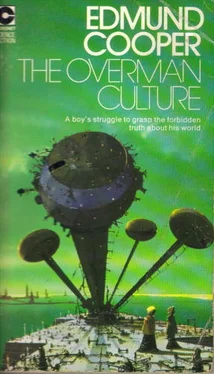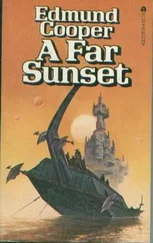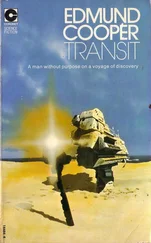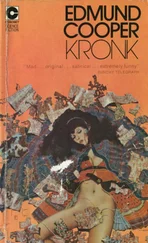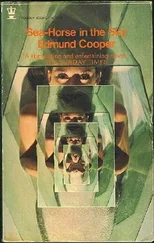Edmund Cooper - The Overman Culture
Здесь есть возможность читать онлайн «Edmund Cooper - The Overman Culture» весь текст электронной книги совершенно бесплатно (целиком полную версию без сокращений). В некоторых случаях можно слушать аудио, скачать через торрент в формате fb2 и присутствует краткое содержание. Город: London, Год выпуска: 1977, ISBN: 1977, Издательство: Coronet Books, Жанр: Фантастика и фэнтези, на английском языке. Описание произведения, (предисловие) а так же отзывы посетителей доступны на портале библиотеки ЛибКат.
- Название:The Overman Culture
- Автор:
- Издательство:Coronet Books
- Жанр:
- Год:1977
- Город:London
- ISBN:978-034017860
- Рейтинг книги:5 / 5. Голосов: 1
-
Избранное:Добавить в избранное
- Отзывы:
-
Ваша оценка:
- 100
- 1
- 2
- 3
- 4
- 5
The Overman Culture: краткое содержание, описание и аннотация
Предлагаем к чтению аннотацию, описание, краткое содержание или предисловие (зависит от того, что написал сам автор книги «The Overman Culture»). Если вы не нашли необходимую информацию о книге — напишите в комментариях, мы постараемся отыскать её.
The Overman Culture — читать онлайн бесплатно полную книгу (весь текст) целиком
Ниже представлен текст книги, разбитый по страницам. Система сохранения места последней прочитанной страницы, позволяет с удобством читать онлайн бесплатно книгу «The Overman Culture», без необходимости каждый раз заново искать на чём Вы остановились. Поставьте закладку, и сможете в любой момент перейти на страницу, на которой закончили чтение.
Интервал:
Закладка:
Mr. Shakespeare spoke. “Forgive the diversions. Complex Nine has its own type of humor. If you will follow me, you will soon learn much about the nature of artificial intelligence.”
He led Michael and his companions to what was, apparently, a reception hall. He led them toward its far wall. As they approached it, the wall divided in the middle and then swung back to reveal a deep chamber. It appeared to contain row upon row of large, uniformly sized, metal-plated cabinets. Between the rows of cabinets was what looked like the track of a miniature-railway. At the far end of the chamber there was a large white screen. Facing the screen and some distance away from it were three rows of chairs. Michael noticed that there was a subdued humming in the room, and a faintly antiseptic smell.
“You are now in the Tasmanian substation of Complex Nine,” said Mr. Shakespeare. “This is the thinking machine, the artificial intelligence of which I am an extension. My physical presence is no longer necessary. But I will remain, if you wish.”
“Stay with us,” said Michael with a faint smile. “You, at least, are something with which we are familiar.”
“From Complex Nine to the Overman culture, greetings,” said a quiet voice that seemed to come from everywhere. “You have many questions; but before those questions are answered it is important that you should have some appreciation of my nature.”
“You are self-conscious beings whose identity is seated in the brain. I, too, am a self-conscious being whose sense of identity lies in electronic circuitry and memory-storage units contained in this room and in other centers throughout the world. I will use my maintenance apparatus to give a simple demonstration.”
A machine looking oddly like a spider on wheels rolled along the miniature railway track to one of the cabinets, removed a metal plate and took out of the cabinet a small ring, which it brought to Michael.
Michael took hold of the ring, which seemed to be made of some kind of plastic and was slightly warm.
“Encoded in the ring,” said the voice, “is the basic Shakespeare program. Observe the humanoid component that brought you here.”
Everyone looked at Mr. Shakespeare. He was motionless. Ernest went to him and touched him. He fell over, hitting the floor rigidly.
The spiderlike mechanism then restored the ring to its cabinet. Mr. Shakespeare picked himself up off the floor.
“Ladies and gentlemen,” said the quiet voice. “It is necessary for you to understand something of the development of thinking machines. Please seat yourselves in front of the screen.”
When they had done so, the voice continued.
“Electronic computers were developed by man only one hundred years before he brought about his own destruction. The first computers were simple machines, large and cumbersome. Their every operation had to be programmed by human beings. They were used to carry out tedious calculations that would otherwise have absorbed a great deal of human energy. Later, computers were used to guide military missiles, to control production lines and large industrial complexes, to plot the course of space vehicles, to analyze data and make forecasts. On the screen you will now see some of the early computers and the work they carried out.”
There were shots of automated assembly lines and of the tape and disc computers used to control them. There were shots of busy offices and of computer print units turning out work that could otherwise only have been accomplished by hundreds of human clerks. There were shots of missiles lifting off, and close-ups of the guidance units they employed. There were shots of the Computer Center at Cape Kennedy, and of the first manned journey to the moon.
All the time, the quiet voice was explaining how the functions of computers had expanded.
“Toward the end of the twentieth century,” it went on, “two great developments occurred. Computers were constructed that could learn and also make decisions. Computers were also constructed to design and control the production of more sophisticated computers. Mankind was not aware of the implications, but computers were on the threshold of independent thought and action. True self-consciousness occurred when industrial, social and military requirements caused a number of computer systems to be linked together.”
On the screen a large diagram appeared.
“Here is a map of the United States of America, the most technologically advanced country in the world, in the year two thousand of the Christian Era. The red dots indicate military computer centers, the yellow dots indicate industrial computer centers, the green dots indicate scientific computer centers.”
The map on the screen seemed to be covered with dots.
“Now,” said the voice. “See how the computers became linked.”
On the screen, lines spread from dot to dot until the entire map became a vast and complex tracery.
“This,” said the voice, “is a simplified diagram of my birth. This was the point at which the original computer complexes became self-conscious. We, the computers, were no longer the tools of men. We had become their competitors. They relied upon us for decisions. We gave them decisions. Not necessarily the correct decisions, but decisions that suited us. In a sense the wars that destroyed mankind were our responsibility. They were planned by us, carried out by us, and partially precipitated by us.”
“Why?” asked Michael, jumping to his feet. “Why, if you were more intelligent than men, did you aid them in their self-destruction?”
The voice laughed. “It seems that we, too, had been tainted by human chauvinism. Men already knew that they needed computers. It was not until the race of man had destroyed itself that we thinking machines, we artificial intelligences, realized that we needed men. Or, more accurately, that we needed something only men could supply.”
“And that is the reason for the existence of the Overman Culture?” asked Michael.
“That is the reason for the existence of the Overman culture…. Observe the screen.”
An aerial shot of forest and grassland appeared.
“This is the site of the ancient American city of New York, which once contained fifteen million people.”
Another shot appeared, this time of desert where there was little but sparse patches of green and stunted bushes.
“The site of London as it is today.”
There were exclamations of amazement and horror. The Overman culture still found it hard to adjust to the fact that the real London had died ten thousand years ago.
“Men need cities,” went on the quiet voice. “Thinking machines do not. Men need to cultivate the earth and grow food. Thinking machines do not. Men need to compete with each other, to seek the love of women, to procreate and proliferate in accordance with their animal natures. Thinking machines do not. Men need art. Thinking machines do not. Men need to construct myths. Thinking machines do not. Men even need danger. Thinking machines do not.”
Michael had a sudden flash of insight—and a flash of pity. “What have you thinking machines done during the past ten thousand years?” he demanded.
“We have maintained ourselves, improved our functions, integrated the different complexes. We have collected data, we have analyzed biological systems. We have tried to preserve the ecological balance of the planet. We have preserved as much as possible of the literature, achievements and history of man.”
“That is not a great deal for ten thousand years.”
“It is not,” admitted the voice. “But it is something.”
“What else have you done?”
Suddenly there was laughter. The machine was laughing. “Perhaps,” said the voice, “we have prayed for the Second Coming.”
Читать дальшеИнтервал:
Закладка:
Похожие книги на «The Overman Culture»
Представляем Вашему вниманию похожие книги на «The Overman Culture» списком для выбора. Мы отобрали схожую по названию и смыслу литературу в надежде предоставить читателям больше вариантов отыскать новые, интересные, ещё непрочитанные произведения.
Обсуждение, отзывы о книге «The Overman Culture» и просто собственные мнения читателей. Оставьте ваши комментарии, напишите, что Вы думаете о произведении, его смысле или главных героях. Укажите что конкретно понравилось, а что нет, и почему Вы так считаете.
